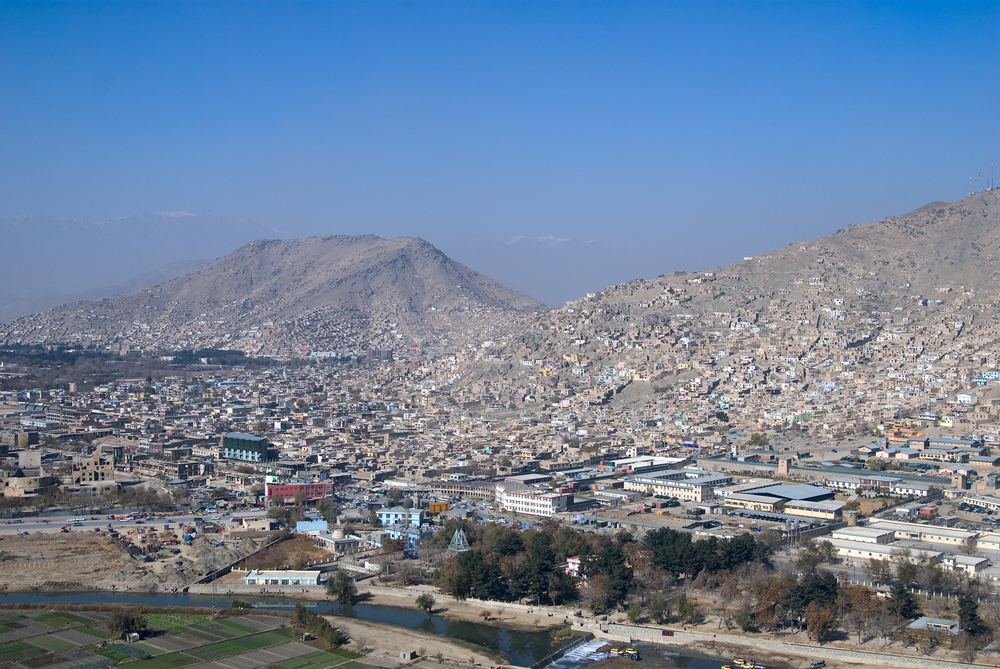Breaking
Afghan economic crisis looms as foreign aid dollars depart
KABUL, Afghanistan — Afghanistan’s fragile economy has lost around a third of its value in the past year as international aid organizations that poured in cash for more than a decade have drastically scaled back after Western forces effectively ended their 13-year war against the Taliban.
Assuming power in September amid a continuing Taliban insurgency, President Ashraf Ghani inherited a moribund economy and an electorate weary of endemic corruption and soaring unemployment. But economists, analysts and officials agree that the economic challenge has been compounded by the Western handover of security to Afghan forces, completed at the end of last month, whose knock-on effect has left key sectors lacking investment and struggling for funds.
Economic growth that was above 14 percent in 2012 will fall to just 1.4 percent this year, the World Bank predicts. In recent months, fears about the state of the economy have outstripped security concerns in opinion polls taken across the country.
The Central Bank spends tens of millions of dollars weekly to stem the fall of the afghani as money continues to leave the country, traders said, reflecting a general lack of confidence in the government’s ability to introduce reforms, stimulate growth, guarantee security and cut corruption.
At Kabul’s Saraye Shahzada money market, traders dealing in dollars, rubles, euros, rials, rupees and dirhams, are concerned about capital flight.
“At least twice a week, the Central Bank sells $40 million to $50 million to support the afghani,” said Mohammad Khan Baz, the market’s manager. “If the government doesn’t pay attention to security and provide opportunities for investors, I am afraid that the economic situation for ordinary people will go from bad to worse.”
Imports vastly outstrip exports, Ghani recently told parliament, exacerbating the country’s dependence on financial support from international partners – who are already spending billions annually on the military and police.
Afghan authorities had four years’ notice that the U.S. military, which spent more than $1 trillion between 2001 and 2014, would close most bases and withdraw combat troops at the end of last year. About a third of Afghanistan’s population lived close enough to a military base to benefit from its presence. On top of war costs, the U.S. spent more than $100 billion on development.
Construction, one of the few industries that offered employment outside of aid projects, has stalled with half-finished buildings dotting the capital and other cities. Kabul rents, once among the world’s highest, have plummeted.
Former construction engineer Hamid Sahak, 38, said he noticed the downturn creeping up more than a year ago.
“Even though a lot of projects are half-completed – not only office blocks but hospitals, clinics, schools and roads all over the country – the money has simply run out and everything has closed down,” he said.
Afghanistan’s dependency on international funding for development in the decade after the Taliban were toppled in the 2001 U.S.-led invasion led to widespread corruption that stifled industrial growth, experts say. Opium continues to be the country’s biggest earner, with the United Nations saying it brings in close to $3 billion a year – enriching mobsters and funding insurgents.
By contrast, the Finance Ministry said 2014 government revenues were just over $2 billion – 25 percent lower than initial projections. Abdul Qadir Jaillani, the ministry’s spokesman, attributed the lower-than-expected revenues to “the long election process, the fall in overall investment, trade and business across the country, the negative impact of the end of the international combat mission, and concerns about the ability of the Afghan security forces to take on the insurgency.”
Afghanistan’s security forces have been leading the fight against the insurgency since mid-2014. Since Dec. 31, they have been fighting largely alone. A support contingent of 13,500 foreign troops, mostly Americans, will remain through this year.
Wafillah Iftakhar, head of the Afghanistan Investment Support Agency, said entrepreneurs were delaying investments as they waited for positive signs that the government is tackling corruption and cutting red tape.
“Investors have stopped most of their activities or have cut their turnover, which has had a serious impact on the economy, contributing to the rise in unemployment,” he said. “Many companies that had been contracted to NATO have downsized and factories have cut production, so overall we think that investment is down 30 to 35 percent in 2014 compared to the year before.”
Foreign investment was practically zero, he said, mainly due to political instability surrounding the election process – which lasted most of 2014 and ended in a compromise as the two main candidates, Ghani and Abdullah Abdullah, formed a “national unity government.”
Ghani’s recent announcement of Cabinet nominees, almost four months after taking office, contributed to a minor boost in confidence, Jaillani said. Afghanistan’s 2015 revenue target of $2.17 billion is expected to come from “customs, mines and telecommunications, passport distribution, ID cards, vehicle registration and others,” he said.
Mining, long touted as the economic bedrock of future development, is yet to draw serious foreign investment, as global mining companies are put off by violence and lack of infrastructure. In the meantime, criminal gangs are looting mines and selling minerals to neighboring countries at a fraction of global prices – undermining potential for the government to exploit the estimated $3 trillion in mineral and petrochemical resources, according to reports by the anti-corruption watchdog organization Integrity Watch Afghanistan.






















